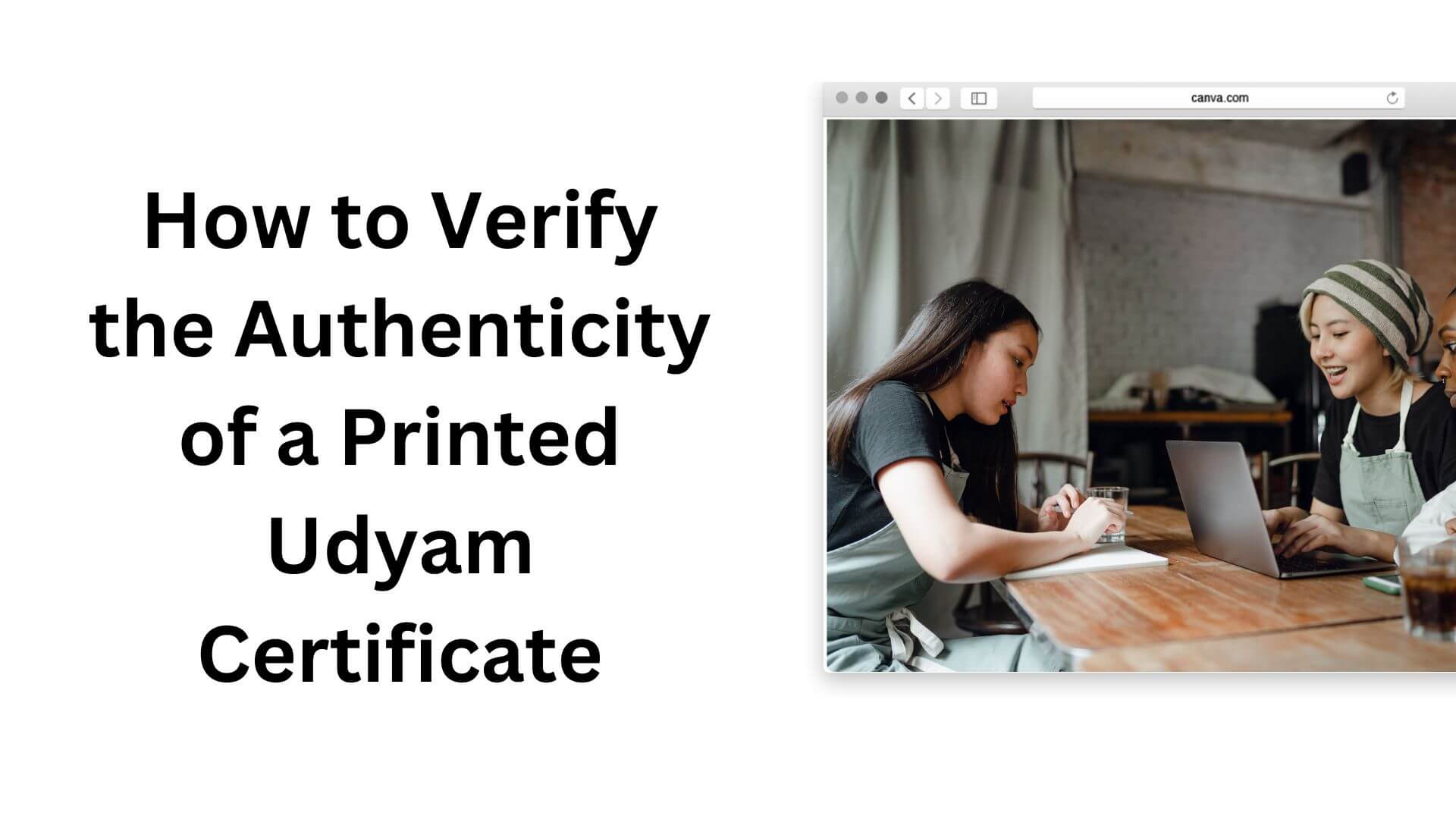The Role of Udyam Registration in Promoting ‘Make in India’

Introduction:
‘Make in India’ is a flagship initiative launched by the Government of India to encourage domestic manufacturing and promote India as a global manufacturing hub. Under this ambitious campaign, the Udyam Registration Online has emerged as a critical tool to facilitate the growth and development of small and medium-sized enterprises (SMEs) in the country. Udyam Registration is a simple and user-friendly online process designed to provide various benefits and support to businesses, thereby playing a crucial role in realizing the vision of ‘Make in India.’
The Importance of Udyam Registration:
Formalizing and Empowering SMEs:
Udyam Registration acts as a formal recognition of a business entity as an SME. It enables businesses to avail various government schemes, subsidies, and incentives exclusively meant for SMEs, empowering them with financial support and operational advantages. This formalization encourages more enterprises to join the manufacturing sector, contributing to the growth of ‘Make in India.’
Access to Financial Assistance:
With Udyam Registration, SMEs gain improved access to credit and financial assistance from banks and financial institutions. The formal recognition helps build trust with lenders, reducing the risk perception associated with SMEs. As a result, more SMEs can secure the necessary funds to expand their operations and invest in modern technologies, driving innovation and enhancing productivity.
Ease of Doing Business:
The Udyam Registration process is entirely online, eliminating bureaucratic hurdles and paperwork. This ease of doing business fosters a conducive environment for SMEs to thrive. Reduced administrative burden allows entrepreneurs to focus on their core activities, promoting efficiency and growth.
Increased Market Opportunities:
Udyam Registration provides SMEs with greater visibility and credibility, both domestically and internationally. It enhances their chances of participating in government tenders and procurements, opening up new market opportunities. As SMEs grow and scale, they contribute significantly to the ‘Make in India’ vision by manufacturing products with a higher local value addition.
Inclusive Growth:
By promoting Udyam Registration, the ‘Make in India’ campaign aims for inclusive growth by bringing diverse sectors and regions into the manufacturing fold. The initiative encourages enterprises from various sectors, including traditional and technology-driven industries, to contribute to the nation’s economic development.
Encouraging Local Entrepreneurship:
Udyam Registration fosters a culture of entrepreneurship among individuals and aspiring business owners. The simplified registration process encourages more people to start their ventures and take advantage of the opportunities presented by the ‘Make in India’ campaign. As more local entrepreneurs enter the manufacturing landscape, they bring unique ideas, skills, and perspectives, leading to diversified product offerings and enhanced competitiveness.
Facilitating Technology Adoption:
With formal recognition and access to financial assistance, SMEs can invest in modern technologies, machinery, and infrastructure. This move towards technological upgradation enhances the quality of products and services offered by these enterprises, making them globally competitive. Moreover, the adoption of advanced technologies leads to higher productivity and operational efficiency, driving the ‘Make in India’ initiative forward.
Job Creation and Skill Development:
The growth of SMEs, enabled by Udyam Registration, directly translates into job creation. As more manufacturing units are established or expanded, the demand for skilled and unskilled labor increases, benefitting the workforce and promoting inclusive economic growth. Additionally, the process of manufacturing itself generates new skill requirements, leading to skill development programs and vocational training initiatives that align with the changing needs of the industry.
Promoting Export Competitiveness:
Udyam Registration allows SMEs to participate in various export promotion schemes and incentives. By encouraging small and medium-sized enterprises to explore international markets, the ‘Make in India’ initiative gains momentum in the global arena. As these businesses expand their customer base beyond national borders, they contribute to increasing India’s export competitiveness and reducing trade deficits.
Sustainable Development:
The ‘Make in India’ campaign emphasizes sustainable manufacturing practices, and Udyam Registration plays a crucial role in driving this agenda. As SMEs are encouraged to adopt environmentally-friendly manufacturing processes, renewable energy solutions, and sustainable sourcing practices, they contribute to the nation’s sustainable development goals. By promoting greener and cleaner manufacturing practices, India can further enhance its reputation as a responsible global manufacturing player.
Suggested Read- Print Udyam Application
Conclusion:
Udyam Registration plays a pivotal role in promoting the ‘Make in India’ initiative by fostering a favorable environment for SMEs to thrive and contribute to the nation’s manufacturing sector. The formal recognition of businesses as SMEs brings with it numerous benefits, including financial assistance, reduced bureaucratic burden, and increased market opportunities. By empowering SMEs and encouraging them to invest in innovation and technology, Udyam Registration accelerates India’s journey towards becoming a global manufacturing powerhouse. To sustain this momentum, it is crucial for the government and stakeholders to continue their efforts in simplifying the registration process and providing adequate support and incentives to SMEs. Through a collective endeavor, ‘Make in India’ and Udyam Registration can drive economic growth, create jobs, and position India as a force to be reckoned with in the world of manufacturing.





